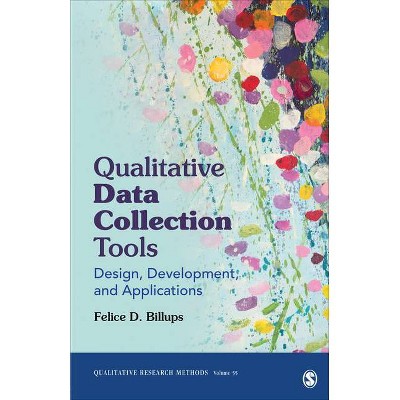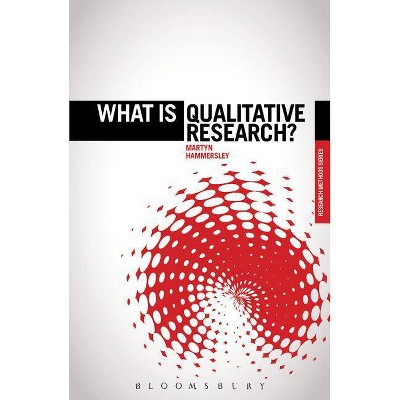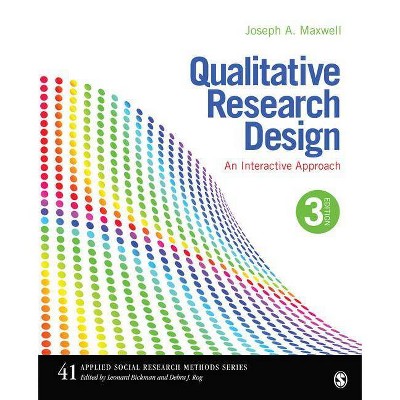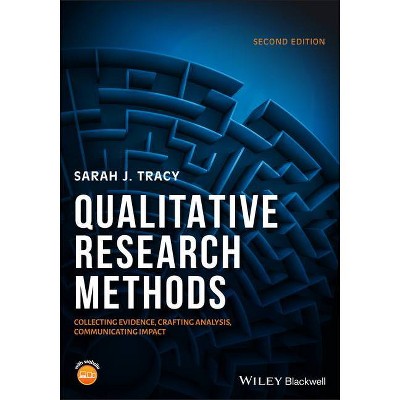Synthesizing Qualitative Research - (Organic Synthesis: State of the Art) by Karin Hannes & Craig Lockwood (Paperback)

Similar Products
Products of same category from the store
AllProduct info
<p/><br></br><p><b> Book Synopsis </b></p></br></br>A considerable number of journal publications using a range of qualitative synthesis approaches has been published. Mary Dixon-Woods and colleagues (Mary Dixon-Woods, Booth, & Sutton, 2007) identified 42 qualitative evidence synthesis papers published in health care literature between 1990 and 2004. An ongoing update by Hannes and Macaitis (2010)identified around 100 additional qualitative or mixed methods syntheses. Yet these generally lack a clear, detailed description of what was done and why (Greenhalgh et al, 2007; McInnes & Wimpenny, 2008). Choices are most commonly influenced by what others have successfully used in the past or by a particular school of thought (Atkins et al, 2008; Britten et al, 2002). This is a substantive limitation. <p>This book brings balance to the options available to researchers, including approaches that have not had a substantial uptake among researchers. It provides arguments for when and why researchers or other parties of interest should opt for a certain approach to synthesis, which challenges they might face in adopting it and what the potential strengths and weaknesses are compared with other approaches.</p> <p>This book acts as a resource for readers who would otherwise have to piece together the methodology from a range of journal articles. In addition, it should stimulate further development and documentation of synthesis methodology in a field that is characterized by diversity.</p><p/><br></br><p><b> From the Back Cover </b></p></br></br><p><b>A new methodology in health care</b> <p>Recently, health care policymakers and practitioners have recognised the potential contribution of qualitative research to support decision making. Different methodological approaches have been developed and used in practice. Some approaches have focused on the inclusion of qualitative data only. Others have experimented with the integration of both quantitative and qualitative research results, or have been used to complement results from quantitative reviews. <p>This book provides the first overview of commonly used qualitative synthesis approaches in health care, with worked examples illustrating how appropriate methods are used in different situations. The methods covered include: <ul> <li>Meta-aggregation</li> <li>Meta-ethnography</li> <li>Critical interpretive synthesis</li> <li>Realist review</li> <li>Mixed methods approach</li> <li>Bayesian approaches to the synthesis of qualitative and quantitative research findings</li> </ul> <p>Written by experienced researchers from three continents, <i>Synthesising Qualitative Research</i> is an authoritative yet accessible introduction to these new methodologies and will be an invaluable tool to all who are involved in systematic reviewing. It aims to guide and assist researchers and professionals in choosing the right approach for their particular review projects.<p/><br></br><p><b> About the Author </b></p></br></br><p><b>KARIN HANNES, </b> PhD Doctor-Assistant, Centre for Methodology of Education, Department of Education, Leuven University and Belgian Centre for EBM-Belgian Cochrane Branch, Department of General Practice, University of Leuven. <p><b>CRAIG LOCKWOOD, </b> RN Associate Director, Research and Education Unit, Joanna Briggs Institute, University of Adelaide.
Price History
Price Archive shows prices from various stores, lets you see history and find the cheapest. There is no actual sale on the website. For all support, inquiry and suggestion messagescommunication@pricearchive.us



















